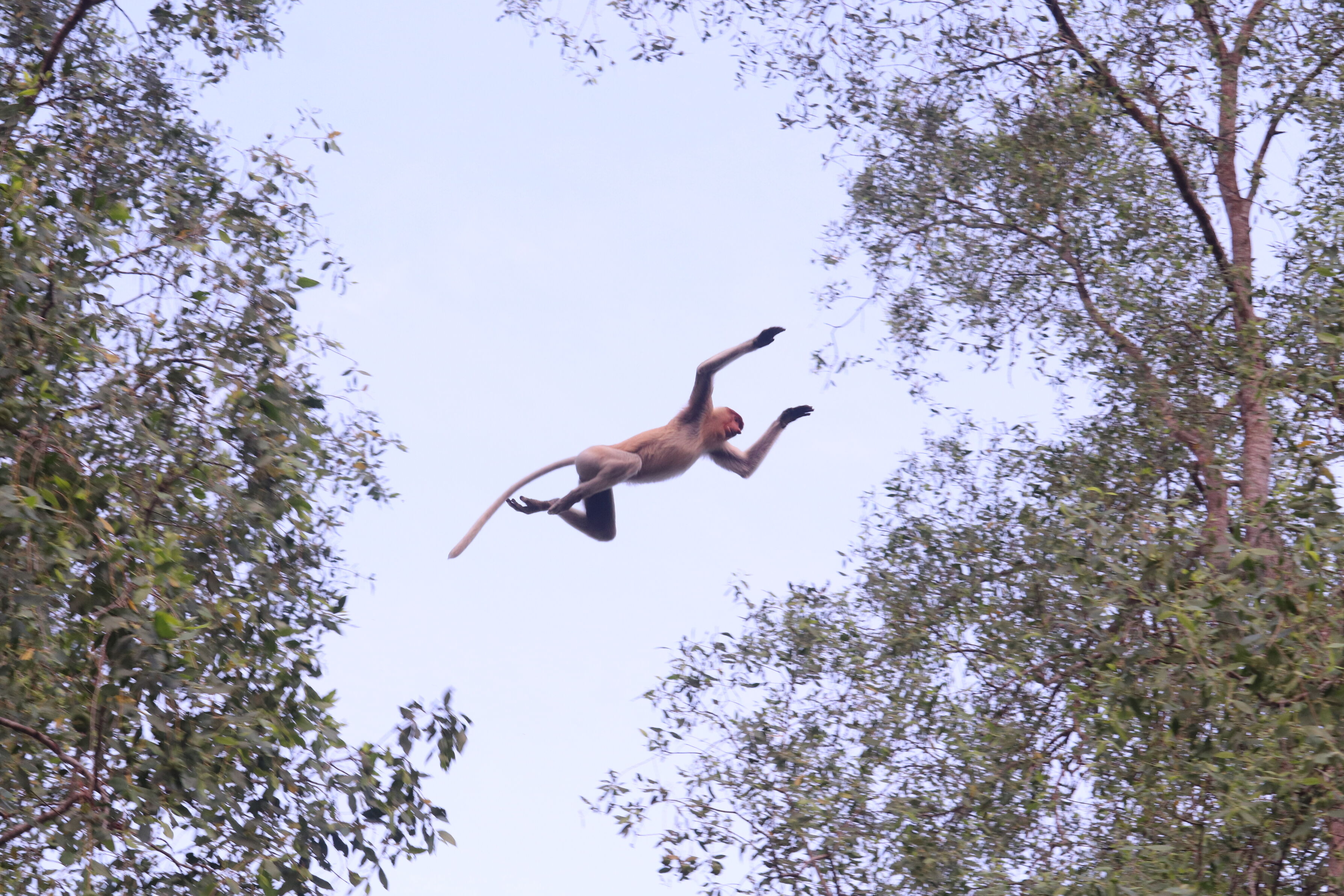


Orangutans, one of the great apes found only in Indonesia and Malaysia, are now facing severe threats to their survival. The tropical rainforests of Sumatra and Borneo, which serve as their primary habitats, are continuously being destroyed by deforestation, land conversion for palm oil plantations, and illegal activities such as logging. This habitat loss has put orangutan populations under immense pressure, pushing them toward the brink of extinction. Protecting orangutans is not just about saving an endangered species, but also about preserving the balance of tropical forest ecosystems.
Orangutan conservation has a broader environmental impact. Known as a keystone species, orangutans play a vital role in the ecosystem by dispersing seeds and contributing to forest regeneration. Their presence helps maintain the health of tropical forests, which in turn, play a crucial role in mitigating climate change by absorbing and storing carbon. The loss of orangutans would have serious consequences for the ecosystem, affecting both biodiversity and the environment’s ability to combat climate change.
Efforts to protect orangutans must involve multiple stakeholders, including governments, NGOs, and local communities. Strengthening law enforcement against illegal logging and wildlife trafficking is essential, while long-term solutions such as habitat rehabilitation and environmental education programs are key to raising awareness about the importance of orangutan conservation. Moreover, the palm oil industry must be encouraged to adopt sustainable and eco-friendly practices to avoid further damage to orangutan habitats.
The future of orangutans depends on the awareness and actions we take today. By enhancing conservation efforts, we can ensure that future generations will still be able to witness orangutans in their natural habitat, while also preserving the delicate balance of ecosystems that sustain both human life and wildlife. Protecting orangutans is a shared responsibility.